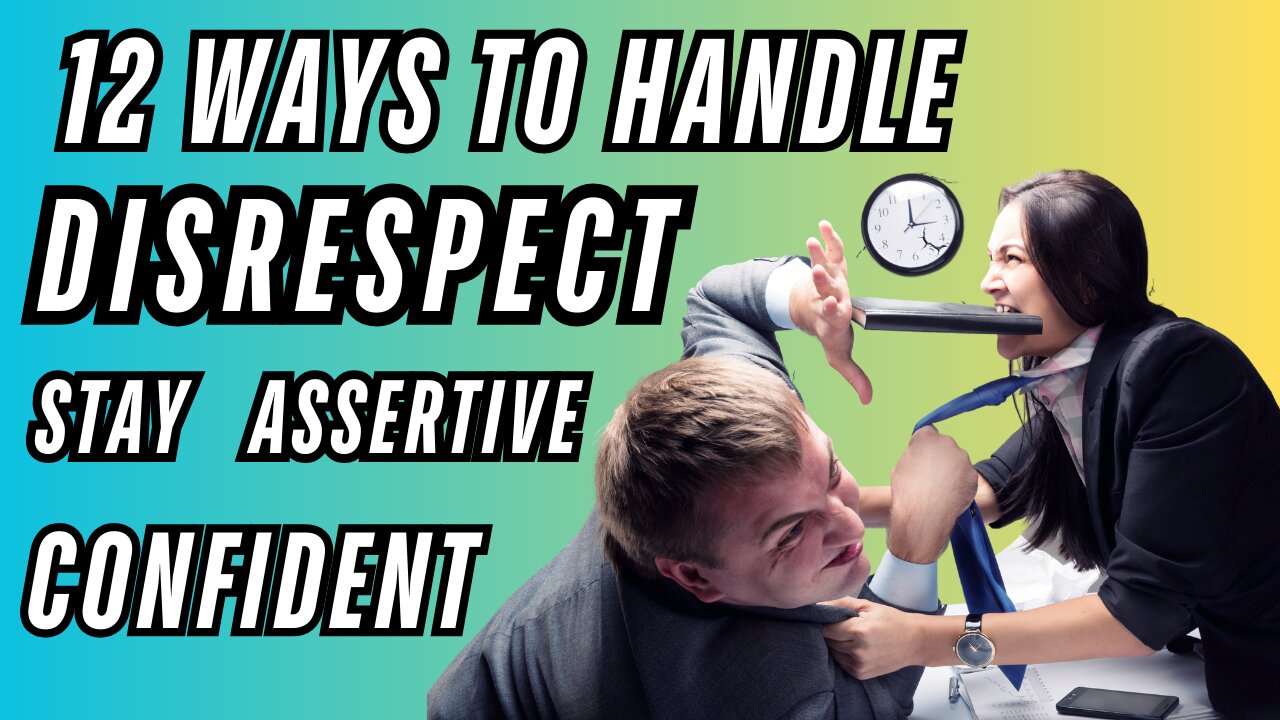How To Handle A Disrespectful Boss

Navigating the professional landscape can be challenging, especially when faced with a disrespectful boss. The prevalence of workplace mistreatment impacts employee well-being, productivity, and overall organizational health.
This article explores strategies for effectively handling a disrespectful boss, offering practical advice and insights to empower individuals facing such situations. Understanding how to address this delicate issue is crucial for maintaining a healthy and productive work environment.
Understanding Disrespectful Behavior
What exactly constitutes disrespect in the workplace? It can manifest in various forms, including public humiliation, belittling comments, unfair treatment, and a lack of recognition for accomplishments. SHRM (Society for Human Resource Management) notes that such behaviors can create a toxic atmosphere, hindering collaboration and innovation.
Before taking action, it's essential to carefully assess the situation. Differentiate between a bad day and a consistent pattern of disrespect, document specific instances, including dates, times, and witnesses, this record will be crucial if you decide to escalate the issue.
Strategies for Addressing Disrespect
One of the most effective initial steps is to address the issue directly with your boss, choose a private setting and communicate your concerns calmly and professionally. Use "I" statements to express how their behavior affects you, for instance, "I feel undervalued when my contributions are dismissed in meetings."
If a direct conversation seems too daunting or has proven ineffective in the past, consider speaking with Human Resources (HR). HR professionals are trained to mediate conflicts and ensure fair treatment for all employees.
Familiarize yourself with your company's policies on workplace conduct and reporting procedures. Understand your rights and responsibilities, ensuring you follow the established channels for addressing grievances.
Escalating the Issue
If direct communication and HR intervention fail to yield positive results, you may need to consider further action. This could involve escalating the issue to a higher-level manager or seeking legal advice.
Before taking such steps, carefully weigh the potential consequences and gather all relevant documentation. Consult with an employment lawyer to understand your legal options and ensure you are protected.
Remember, prioritizing your well-being is paramount. If the situation becomes unbearable and all other options have been exhausted, consider seeking alternative employment opportunities, a toxic work environment can significantly impact your mental and physical health.
Building Resilience and Seeking Support
Dealing with a disrespectful boss can be emotionally draining, building resilience and seeking support is crucial. Practice self-care techniques such as exercise, meditation, and spending time with loved ones.
Connect with colleagues, friends, or family members who can offer emotional support and guidance. Consider seeking professional counseling to develop coping strategies and manage stress.
According to a study by Gallup, employees who feel supported at work are more engaged, productive, and less likely to experience burnout. Cultivating a strong support network can make a significant difference in navigating challenging situations.
Protecting Yourself in the Workplace
Document everything. Maintain a detailed record of all interactions with your boss, including emails, meeting notes, and performance reviews. This documentation can be invaluable if you need to file a formal complaint.
Set clear boundaries. Communicate your limits and be assertive in protecting your time and energy. Avoid engaging in gossip or negative conversations about your boss or other colleagues.
Focus on your performance and maintain a positive attitude, even in the face of adversity. Continue to deliver high-quality work and seek opportunities for professional development.
The Impact on Workplace Culture
Disrespectful behavior from a boss not only affects individual employees but also undermines the entire workplace culture. It can lead to decreased morale, increased turnover, and a decline in productivity.
Organizations have a responsibility to foster a culture of respect and accountability. This includes implementing clear policies against harassment and discrimination, providing training on respectful communication, and holding managers accountable for their behavior.
Creating a positive and inclusive work environment benefits everyone. The Harvard Business Review highlights that companies with strong cultures of respect and trust are more innovative, adaptable, and successful.
Conclusion
Handling a disrespectful boss requires courage, patience, and a strategic approach. By understanding the different forms of disrespect, exploring available resources, and prioritizing your well-being, you can navigate this challenging situation effectively.
Remember, you have the right to be treated with respect in the workplace. Don't hesitate to seek support, advocate for yourself, and take appropriate action to protect your rights and well-being.
Ultimately, creating a positive and respectful work environment is a shared responsibility. By speaking out against disrespectful behavior, we can contribute to a more just and equitable workplace for all.


















